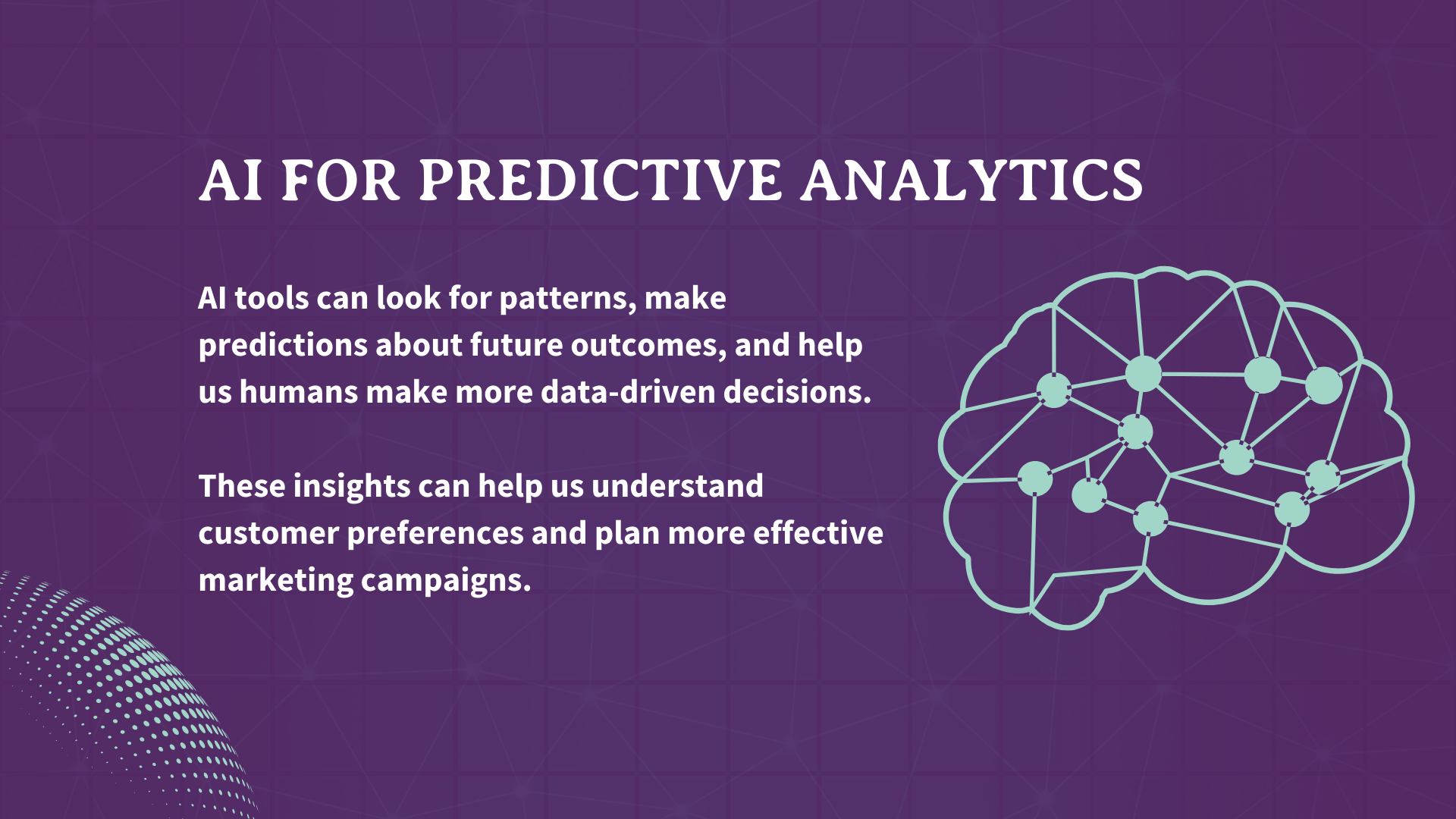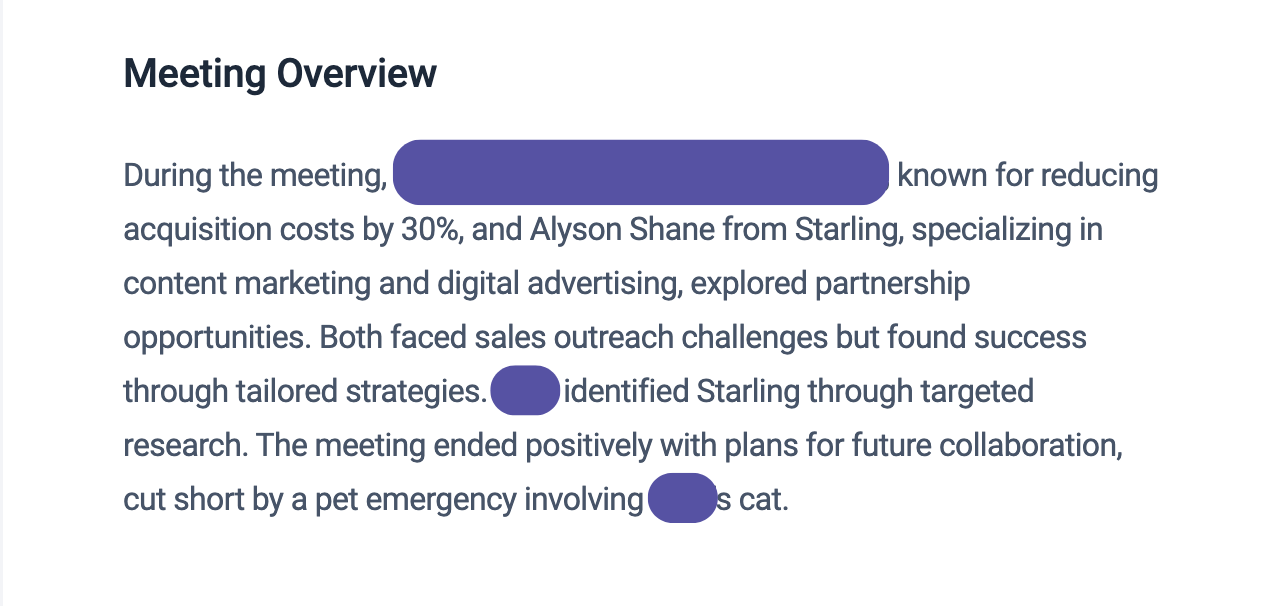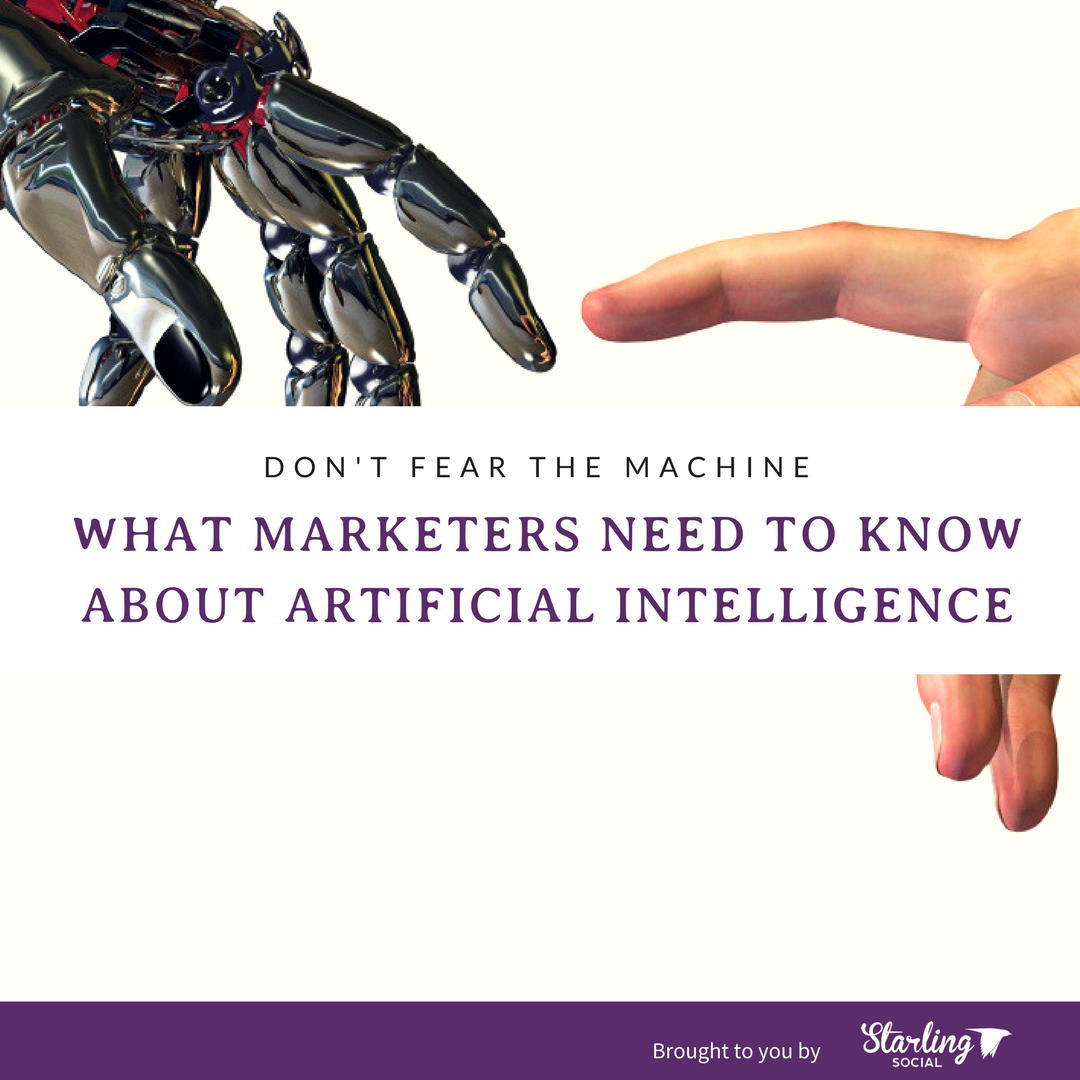Tagged: Artificial Intelligence
Best Practices for Using AI in Digital Marketing
- by Luke Thiessen
AI: What is it good for? Absolutely some things.
In 2026, digital marketers are bombarded with news and speculation about what AI can do, what it will be doing soon, how we should be using it, and how it will take our jobs. And with little to no regulation in place, we see marketing that runs the gamut of AI use in terms of ethics and efficacy.
Here at Starling Social, we believe in giving good advice which will be true and useful for the long term, so we have been hesitant to dive into AI due to the rapidly changing nature of the technology. But we have come to see a few truths about AI in digital marketing that we believe can help guide our work in 2026.
When you work with Starling Social, you’re still getting content created by humans, for humans. Research shows that savvy social media users recognize – and really dislike – AI-generated content. Not to mention that AI won’t know your business, your brand standards, or be able to generate images of your staff, facilities or customers.
However, there are some ways AI can help in our work without compromising quality. Here are some ways we are finding AI useful in 2026, along with best practices for using AI in digital marketing.
AEO/GEO vs SEO
In a study conducted in November 2025, more than a third of internet users started web searches with AI tools (as opposed to traditional search engines). This number is growing, which means it is increasingly important to be optimizing for AI search (also known as AEO, Answer Engine Optimization, or GEO, Generative Engine Optimization) as well as SEO.
Thankfully, GEO is not at odds with SEO, and shares a lot of the same principles – just a little more specific. There are many pieces to this, but for web copy, writing clearly and concisely, and getting to your key points and keywords within 150 words of the beginning of a page or article are a big help.
AI for generating content ideas
Something we see a lot of in our industry is AI being used to generate ideas for social media and blog content.
In a broad sense, AI can be pretty good at this. You can use your favourite chatbot to (almost) instantly generate a list of concepts and ideas which you may not have thought of otherwise, or certainly as quickly. Those concepts might give you what you’re looking for, or help spark a better and more focused idea.
However, it’s worth remembering the limits of AI before you become too reliant on it for idea generation. First, AI will generally be behind on any trends or timely data, as it can only be trained on content which already exists. Second, and similarly, AI generally won’t give you any truly novel ideas, because again, it is drawing only on content that already exists.
AI for research
As we mentioned earlier, people are increasingly turning to AI as an alternative to traditional search engines – and often for good reason. Traditional search seems to be getting worse in quality, and AI often allows for more specific, targeted search and results.
This is especially true for doing research, as most AI tools will pull up and summarize published data with links to where it found the information, allowing you to fact-check its own results. This is crucial, because AI is also prone to occasional hallucinations – but as long as you’re double checking any facts and data you want to use, it can certainly streamline aspects of the research process.
AI for data analysis
For those actually conducting their own research, surveys, or reviewing data, AI does some of its best work in analysis. Feeding your own high-quality data to an AI tool and asking it for statistics and insights allows you to skip the Excel exercises and streamline your analysis.
Many CRM and database tools are also now integrating AI for this exact reason, allowing you to draw insights from your own customer, donor or survey data. This is one of our favourite uses of AI, as it’s more about leveraging real data and computer power to improve your marketing than it is about taking a shortcut.
AI for advertising optimization
Most digital advertising platforms now have AI-powered tools for optimizing your ads, whether through automated A/B testing, honing or broadening your audience, testing different placements, or even automated content variations.
While we wouldn’t suggest these for every brand and every ad, the data suggests these are often useful. Our advice is to try these out for yourself, but pay close attention to what aspects of your ads might be altered by the AI, and consider whether that is appropriate for your ads and brand.
For instance, if your ads rely on some very specific wording – perhaps because you’re in a regulated industry or have a certain type of promotion in your ad – you will want to avoid any AI altering your actual content.
Subscribe for more
Looking for more guidance on how to optimize your digital marketing? Want to keep your finger on the pulse of AI and what role it plays in our industry? Subscribe to the Starling Social newsletter!
Every second Tuesday, we put together the latest digital marketing news and some helpful articles, both from our blog and around the web. And the best part is, it’s free! Subscribe today and start leveling up your digital marketing.
The Impact of AI on Digital Marketing Strategies
- by Alyson Shane
Lately it seems like artificial intelligence (AI) is everywhere. Whether it’s “imagining” super weird-pictures, answering questions, or generating content, these days it feels like you can’t open an app or browser window without running into an AI tool.
Before we dive into this topic I want to be clear: the current state of AI is not a replacement for human effort and output — but that doesn’t mean that we haven’t been experimenting with it and testing various tools to see how they can help us deliver better results for our clients when possible.
Here are some ways the Starling Social team and I are seeing AI’s impact on the world of digital marketing:
Personalized Customer Experiences
AI-powered algorithms can learn a lot about us in a frighteningly short amount of time by analyzing things like our browser behaviour, buying history, and other preferences to deliver highly personalized content and recommendations.
By using AI, businesses can offer targeted product suggestions, customized offers, and even tailor communication strategies to encourage higher engagement rates and conversions.
We’re also seeing a rise in AI-powered chatbots that go beyond your typical canned responses — these tools can understand context and provide personalized assistance for users who need it.

Predictive Analytics
Here’s an area where we’ve been seeing a lot of positive use cases for AI tools!
Since AI can quickly analyze huge amounts of data, businesses can use it to look for trends in consumer behaviour and in the market more broadly.
AI tools can look for patterns, make predictions about future outcomes, and help us humans make more data-driven decisions.
These insights can help us understand customer preferences and plan more effective marketing campaigns.
Automation in Marketing Campaigns
AI tools can help with strategic decision-making when it comes to managing the mundane parts of a marketing campaign.
AI-powered tools can analyze past user behaviour and figure out things like the best time to schedule a social media post, to scheduling emails at times when readers are most likely to open them, and even when someone should see your ads (more on that below).
Improving Productivity
Recently I was on a Zoom call with another agency owner who mentioned that they were using a tool called FireFlies AI during our meeting.
This cool AI tool not only emails meeting participants a transcription of the meeting but also puts together a handy summary of the meeting as well. Check it out:

Content Creation
If you follow us at all then you know we have thoughts about this — and they aren’t positive.
Basically, the current generation of AI isn’t able to replicate the kind of high-quality content that humans are able to write and think up.
If you don’t live and breathe this industry, then you’ve probably read AI-generated content and not been able to tell the difference, but I studied rhetoric (persuasive writing) and have been publishing content online for 22 years, and believe me, once you start seeing the patterns in AI-generated content it becomes infuriatingly bad.
Everything starts to sound same-y, repetitive, and clunky. Often tools like ChatGPT and others will use language that doesn’t “sound” like the way people regularly speak.
To those of us who live and breathe this industry, AI-generated content sounds like nails on a chalkboard.
As it stands, we don’t recommend using AI tools for your business and content needs.
How to Spot AI-Generated Content
Let’s take a second to cover some patterns to look for in AI-generated content so you can start to understand how badly the current state of AI is “flattening” content online:
Objectivity
AI loves to add subjective claims to the copy it generates, so keep an eye out for copy that gushes about why something is important, relevant, or timely to the reader.
When reading copy, ask what in the following text supports a statement that something is:
- Impressive
- Thought-provoking
- Unique
- Noteworthy
- Remarkable
- Comprehensive
- Holistic
- Impactful
If there aren’t concrete examples, like explaining why something is “unique” compared to something else, then it probably wasn’t written by a human.
Passive Voice vs. Active Voice
The most effective copy is written in an active voice, but AI tends to write in a passive voice which can be a dead giveaway. Here’s an example of what I mean:
- Passive voice: The project was led by our CEO, Steve.
- Active voice: Our CEO Steve led the project.
Active voice in writing is more impactful, uses shorter sentences, and tends to be clearer — something the current generation of AI isn’t great at, yet.
Logical Correlations
Keep an eye out for phrases like “as evidenced by” because typically if AI is generating the copy, the first part of the statement won’t be supported by objective evidence.
Structural Clichés
This is one of those things you can’t “unsee” once you start noticing it. Look for structural clichés like:
- In this fast paced world
- It is important to note that
- In the dynamic world of
- A treasure trove of
- Embark on a journey
You can find a longer list of overused AI generated phrases here.
Repetitiveness and Verbosity
When AI generates copy that says something like “the new process effected transformative change” it should actually be written as “the new process transformed X.”
This is one of my biggest pet peeves with AI-generated content; it’s super verbose and if you read it out loud, it doesn’t reflect how humans really speak.
Overusing Verbs
AI loves to lean on specific verbs because they’ve been overused in business for decades. This tends to make the copy sound clunky and tired. A few examples to look for include:
- Delve
- Foster
- Ensure
- Tapestry
- Transform
- Leverage
- Revolutionize
- Captivate
You can find a list of even more overused AI words here.
Improved Pay-Per-Click (PPC) Results
We’ve been experimenting with Google’s AI tools to enhance our clients’ PPC campaigns and seeing great results… sometimes.
We’ve been running small A/B tests instead of applying AI to the full campaigns, since sometimes the AI makes choices about targeting and keywords that aren’t related to our campaigns (not good!)
While AI has certainly enhanced the return on investment (ROI) of some of our campaigns, we definitely need to make sure we’re keeping an extra-close eye on the campaigns that are AI-powered since we often have to go in and tweak things to keep the tests running smoothly.
Advertising Targeting
Machine learning algorithms can analyze user demographics, behaviour, and interests and show highly targeted ads to people who are likely to be interested in what you offer.
In theory, this can help you reach more of your target audience, increase your ad relevance (showing ads to the right people at the right time), and can reduce ad spend across the board.
Note: we’ve been experimenting with Meta’s AI-powered targeting and have found that our humans-led targeting is outperforming AI-powered ads in all metrics. This may change, but right now we recommend a human-led approach to your targeting!
AI and Your Digital Marketing
There are lots of ways that AI is changing the world of digital marketing for the better, and some ways where it’s a substitute for corner-cutting.
This is likely to change as the tools continue to learn, iterate, and become more sophisticated, so it’s something that we’ll be keeping an eye on, and you should, too.
If you’re looking for high-quality, human-created content for your marketing plan, reach out today! You can also subscribe to our weekly newsletter for all the latest news, updates and strategies in the world of digital marketing.
Don't Fear the Machine: What Marketers Need to Know About Artificial Intelligence
- by Alyson Shane
Lately there's been a lot of wringing of hands and gnashing of teeth around the boom in artificial intelligence (AI), and fears that it may replace the role of marketing experts in the future.
At the surface, this seems like a legitimate worry. Recently McKinsley Quarterly stated that “while automation will eliminate very few occupations entirely in the next decade, it will affect portions of almost all jobs to a greater or lesser degree, depending on the type of work they entail."
In fact, Gartner predicts "by 2018, 20% of all business content will be authored by machines.”
If this sounds scary, we understand. But take a page out of The Hitchhiker's Guide to the Galaxy and DON'T PANIC. We're here to explain what you need to know about AI, marketing, and how marketers can look at this emerging technology as a friend rather than an enemy:

AI is Still in It's Early Stages
When most people think of 'AI' they don't get into the nitty-gritty of what artificial intelligence actually is, and the differences between the different kinds of emerging AI. There are actually a lot of different things that fall into the "AI" category, including:
Machine learning
This type of AI allows computers to learn without being explicitly programmed to do so. Machine learning is similar to data mining, and focuses on the development of programs which can change when exposed to new data.
Deep learning
This type of AI uses artificial neural networks which are equipped with multiple layers. These layers use output from the previous layer as input, and as a result can learn multiple levels of representations which can then be abstracted into hierarchical layers of concepts.
Natural language generation (NGL)
NGL systems are like AI translators which can take data into a natural language representation (aka text). For example, you can feed your data into an NGL AI and it can provide a text summary of all the information you fed it.
Not only are these types of AI tasked with solving different problems, but they're also at varying levels of maturity. So, yes, while these technologies are being developed and applied in various areas, they're not going to be replacing you anytime soon.
What Marketers Need to Know
The best way to feel better about AI is to start to experiment with how you can start using it to make your job easier. After all, that's what the tools are designed to do.
Whether it's sourcing new content ideas for your social media calendar; automating and optimizing your content so it's seen by the widest possible audience; perform A/B testing on content to see which your audience likes best; or reviewing analytics and producing recommendations and suggestions based on the data, there's lots of ways that us marketers can start thinking of ways to incorporate AI to make our lives easier.
AI Depends on Data
Regardless of the kind of AI you're worried about, one common factor is this: AI requires both structured and unstructured data in order to create customized solutions for your clients. This means that larger, enterprise businesses will be the first to start seeing any benefits from AI, since they tend to have larger data sets to pull information from.
Lots of marketers are worried about NLG AI taking away their content generation, but AI created for this purpose still can't create prose by itself. It requires a formatted template and data sources in order to generate content that makes sense, let alone feels as though it was written by a (very stiff) human.
This is especially important since so many brands and businesses now rely on savvy, provocative content and copy that stands out, so until AI can accurately generate a snappy tweet or add some tszuj to a blog post you're in the clear.
What Marketers Need to Know
Instead of worrying about what AI can take away from you, why not re-frame the idea and look at the ways that AI can start to make your job easier?
Start by assessing the data you have, and how you can use AI to take all of that information and start to generate things like insights and analysis, predictable outcomes, improving content, and more. Just ask yourself a few questions to get started:
- What kind of data do I have on-hand?
- Is it structured (columns and rows) or unstructured (documents and social media posts)?
- What kinds of stories could NGL AI tell using this data?
- Are there any tasks I can automate using AI technology?
Conclusion: AI Isn't Coming For You... Yet
Currently AI is still very much in its infancy, which means that marketers can breathe a sigh of relief - for now.
However, instead of sticking your head in the sand and hoping the future never comes, we suggest looking critically at the ways that you can start to work AI into your workflow and actually make your job easier.
Sure, your future self may not be writing every single Tweet or generating ever report, but is that really so bad? Just think of all the research, learning, strategizing, and analysis you'll be able to do your newly-freed-up time, and the added value that it will give to your clients.
Got questions about your content marketing? Give us a shout and ask away! We're happy to help.

